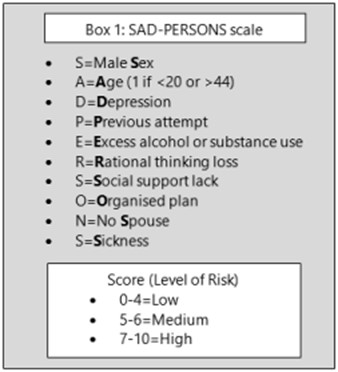A nurse on the psychiatric unit is assessing a client who has moderate anxiety disorder. Which of the following findings should the nurse expect?
Urinary frequency
Rapid speech
Chills
Distorted perceptual field
The Correct Answer is A
A- Urinary frequency: Anxiety, particularly moderate to severe anxiety, can stimulate the sympathetic nervous system, which may lead to physical symptoms such as increased urination or urinary frequency. This is due to the body’s "fight-or-flight" response, which can affect the bladder.
B. Clients experiencing moderate anxiety may speak rapidly as their thoughts race, and they may feel an urgent need to express their concerns.
C- Chills: Chills are not typically associated with moderate anxiety disorder. Chills are more commonly seen in conditions such as infections or fever.
D- Distorted perceptual field: Distorted perceptual field, also known as perceptual disturbances, is not typically associated with moderate anxiety disorder. Perceptual disturbances refer to sensory experiences such as hallucinations or illusions, which are more commonly seen in severe mental health conditions like psychosis or substance-induced disorders.
Nursing Test Bank
Naxlex Comprehensive Predictor Exams
Related Questions
Correct Answer is B
Explanation
This response acknowledges the client's effort and self-care without making assumptions or imposing judgment. It is an open and non-intrusive statement that shows the nurse is paying attention to the client's appearance and recognizing their positive action of self-grooming. It allows the client to share their feelings or thoughts if they choose to without feeling pressured or judged. This response demonstrates empathy and understanding, creating a supportive and non-threatening environment for the client to express themselves if they wish to do so.
Incorrect:
A- "Why are you all dressed up today?" This question may put the client on the spot and make them feel self-conscious or defensive. It assumes that there must be a specific reason for the client's appearance, which may not be the case. It can also imply that the client's usual appearance is different or not as desirable.
C- "Everyone feels better after showering." While it is true that personal hygiene can have a positive impact on one's mood, this statement may come across as dismissive or oversimplifying the client's experience. It may invalidate any underlying emotions or struggles the client is facing with their depression. It is important to acknowledge and address the client's feelings rather than making broad generalizations.
D- "You must be getting better. You look great." This statement assumes that physical appearance is directly correlated with the client's mental health and suggests that improvement in appearance equates to improvement in mental well-being. However, a person's outward appearance may not accurately reflect their internal struggles or progress in managing depression. Additionally, it can create pressure for the client to maintain a certain appearance to be perceived as "better."
Correct Answer is A
Explanation
In this scenario, the nurse's priority should be initiating suicide precautions. Safety is of utmost importance when caring for a client following a suicide attempt. By implementing suicide precautions, the nurse can take steps to ensure the client's physical and emotional well-being, such as removing potential means of self-harm and closely monitoring the client's behavior. This action aims to prevent further harm and promote a safe environment for the client.
Incorrect:
B- Administering the Hamilton Depression Scale: While assessing the client's level of depression is important, it is not the priority in this situation. The client has just attempted suicide, indicating a high level of risk. Therefore, the nurse should prioritize safety measures and immediate interventions rather than administering a depression scale.
C- Making a contract with the client for eating behavior: While addressing the client's eating behavior is important, it is not the priority in this situation. The client has just attempted suicide, indicating a significant risk to their life. Ensuring their safety and providing appropriate mental health support take precedence over addressing their eating behavior.
D- Reviewing the client's toxicology laboratory report: While reviewing the client's toxicology report may provide valuable information about substance abuse, it is not the priority in this scenario. The immediate concern is the client's safety following a suicide attempt. The nurse should focus on implementing suicide precautions and addressing the client's emotional and physical well-being.

Whether you are a student looking to ace your exams or a practicing nurse seeking to enhance your expertise , our nursing education contents will empower you with the confidence and competence to make a difference in the lives of patients and become a respected leader in the healthcare field.
Visit Naxlex, invest in your future and unlock endless possibilities with our unparalleled nursing education contents today
Report Wrong Answer on the Current Question
Do you disagree with the answer? If yes, what is your expected answer? Explain.
Kindly be descriptive with the issue you are facing.
